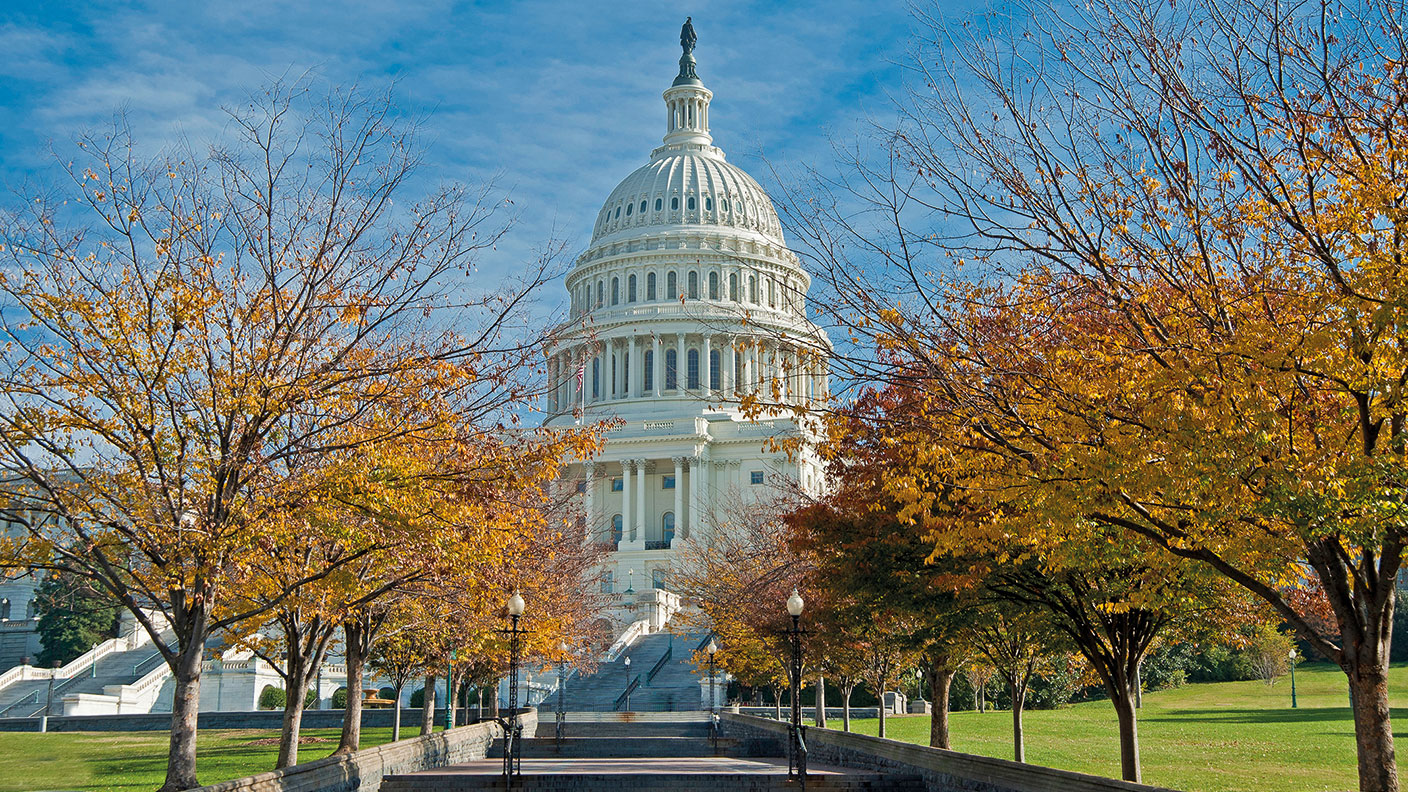A world drowning in debt
The UK budget deficit is on course to hit £350bn, and America’s federal deficit has hit a record $3.1trn. But the debt surge is a truly global phenomenon.

Get the latest financial news, insights and expert analysis from our award-winning MoneyWeek team, to help you understand what really matters when it comes to your finances.
You are now subscribed
Your newsletter sign-up was successful
Want to add more newsletters?

Twice daily
MoneyWeek
Get the latest financial news, insights and expert analysis from our award-winning MoneyWeek team, to help you understand what really matters when it comes to your finances.

Four times a week
Look After My Bills
Sign up to our free money-saving newsletter, filled with the latest news and expert advice to help you find the best tips and deals for managing your bills. Start saving today!
Covid-19 is being allowed to “let rip” in the public finances, says Jeremy Warner in The Daily Telegraph. The Institute for Fiscal Studies says that the UK budget deficit is on course to hit £350bn in the current financial year, equivalent to 17% of GDP. Total UK government debt has already surpassed £2trn for the first time.
America’s federal deficit hit a record $3.1trn for the recently concluded 2020 fiscal year, according to data from the Congressional Budget Office, with spending between April and September almost double the figure for the same period in 2019.
The new wisdom is that fiscal support was withdrawn too quickly after the financial crisis and “spiralling debt no longer matters”, says Warner. True, bond markets are quiescent: “The government can borrow at a negative rate of interest right out to six year maturities.” But that is because of a mixture of “financial repression” – pension funds and insurers are legally required to purchase a certain amount of government debt – and the fact that the Bank of England is “buying up the debt almost as fast as it can be issued”. Yet “debt is debt” and whether through inflation, austerity or default, “eventually it has to be paid for”.
MoneyWeek
Subscribe to MoneyWeek today and get your first six magazine issues absolutely FREE

Sign up to Money Morning
Don't miss the latest investment and personal finances news, market analysis, plus money-saving tips with our free twice-daily newsletter
Don't miss the latest investment and personal finances news, market analysis, plus money-saving tips with our free twice-daily newsletter
The debt surge is a global phenomenon, says The Economist. In June, the IMF forecast that average global public debt would hit 103% of GDP in 2021, up from 83% last year. For advanced economies that figure rises to 132% of GDP by 2021. Yet quantitative easing has soaked up much of the new issuance: “Since January central banks in America, Britain, Japan and the euro area have created new money worth $3.8trn.”
The equity rally looks secure
In recent years investors have learnt that whatever happens in the real economy, it is central bank “liquidity injections” that really drive markets, writes Mohamed El-Erian for Project Syndicate. Many people are perplexed by this year’s stockmarket run, but it reflects the established market wisdom that bad news is good news: “At the first sign of serious market stress”, central banks ride to the rescue with more help. Yet with monetary support hitting its limits the new focus is on fiscal policy.
Investors are already positioning for a post-election surge in US spending, says Michael Mackenzie in the Financial Times. That could finally move the focus away from tech stocks and towards cyclicals such as financial and industrial stocks, which are more sensitive to general economic conditions. Indeed, US and global industrials have begun to outperform their broader markets in recent months, historically a sign of “the start of a new business cycle”. Smaller and medium-sized businesses are also starting to perk up. There are signs that “a broader rally is afoot”.
Get the latest financial news, insights and expert analysis from our award-winning MoneyWeek team, to help you understand what really matters when it comes to your finances.
Alex is an investment writer who has been contributing to MoneyWeek since 2015. He has been the magazine’s markets editor since 2019.
Alex has a passion for demystifying the often arcane world of finance for a general readership. While financial media tends to focus compulsively on the latest trend, the best opportunities can lie forgotten elsewhere.
He is especially interested in European equities – where his fluent French helps him to cover the continent’s largest bourse – and emerging markets, where his experience living in Beijing, and conversational Chinese, prove useful.
Hailing from Leeds, he studied Philosophy, Politics and Economics at the University of Oxford. He also holds a Master of Public Health from the University of Manchester.
-
 New PM Sanae Takaichi has a mandate and a plan to boost Japan's economy
New PM Sanae Takaichi has a mandate and a plan to boost Japan's economyOpinion Markets applauded new prime minister Sanae Takaichi’s victory – and Japan's economy and stockmarket have further to climb, says Merryn Somerset Webb
-
 Plan 2 student loans: a tax on aspiration?
Plan 2 student loans: a tax on aspiration?The Plan 2 student loan system is not only unfair, but introduces perverse incentives that act as a brake on growth and productivity. Change is overdue, says Simon Wilson